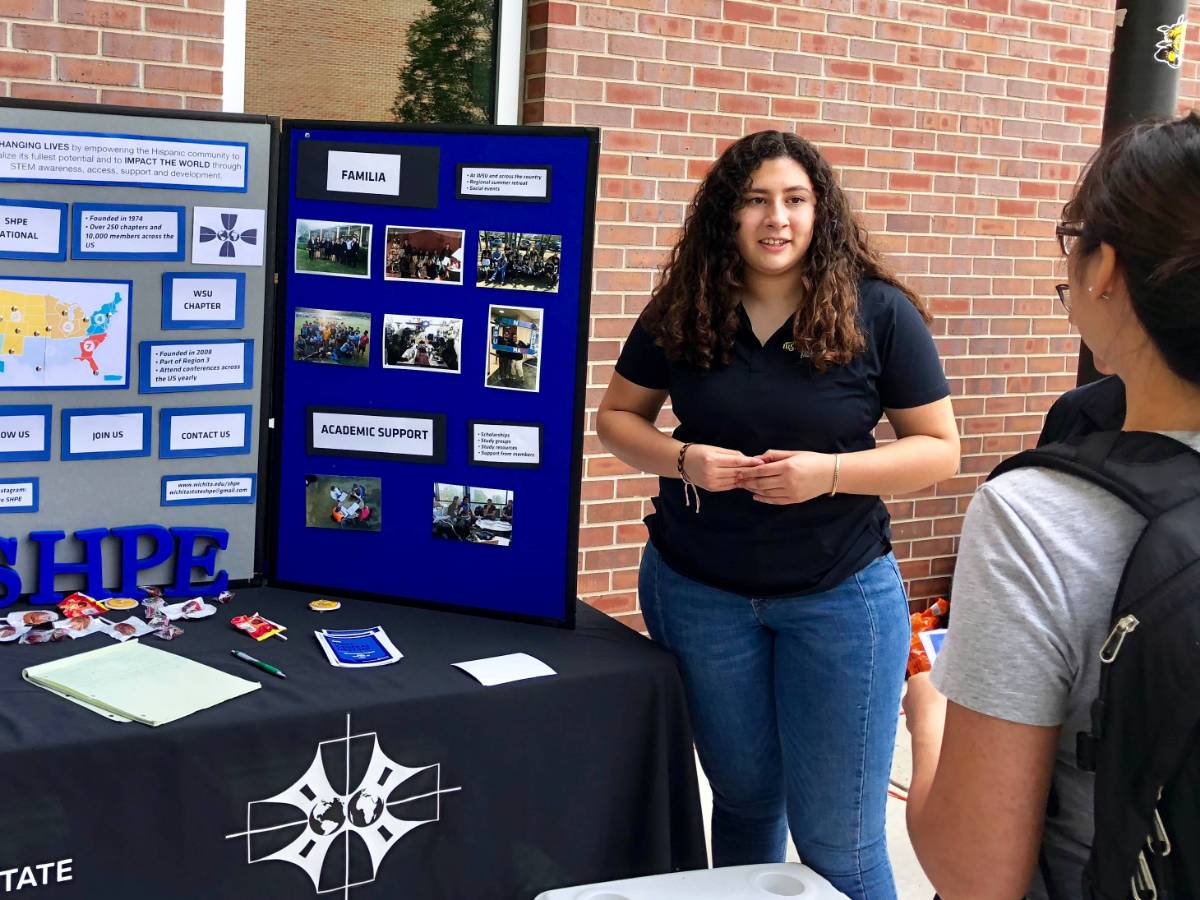Wichita State University has been awarded $813,000 to boost enrollment and retention of students under-represented in science, technology, engineering and math. The funds are part of a larger $3 million, five-year National Science Foundation grant awarded to Kansas State University, which is sharing grant funds with a statewide coalition of universities and community colleges.
The Kansas Louis Stokes Alliances for Minority Participation (KS-LSAMP) program is
named for a long-term African American congressman from Ohio. In addition to WSU,
participating institutions include Kansas State University, Barton County Community
College, Dodge City Community College, Donnelly College, Garden City Community College,
Seward County Community College / Area Technical School in Liberal.
The overall goal of the program is to double the number of underrepresented minorities
graduating with bachelor's degrees in STEM fields from WSU or KSU within five years
of the proposed project. Under-represented minorities include African Americans, Hispanics
and Native Americans.
The grant funds new initiatives to complement those already in place to provide support for students at critical junctures, such as the transition from high school to college, from a two-year to a four-year institution, and freshman-to-sophomore transitions at four-year institutions.
“We are pleased to be able to participate in this statewide grant program as it will ultimately help WSU retain more underrepresented students in STEM fields,” said Wichita State Provost Rick Muma. “Moreover, this initiative is central to our university-wide strategic enrollment plans.”
Wichita State's Dorothy and Bill Cohen Honors College will host a Summer Research Institute for freshmen or community college transfer students. Up to 10 students will gain immersive research experience, working with research faculty members, graduate assistants and undergraduate student mentors to learn hypothesis formation, data collection and analysis and reporting.
Students also will engage collaboratively through leadership and team-building activities. Presentations from additional faculty provides students broad exposure to research areas, and partnership with student affairs and other divisions will introduce students to support structures across campus.
“Diversity is not an afterthought. It is who we are and who we want to be at WSU. It is central to a successful, vibrant community,” said Kimberly Engber, dean of the Cohen Honors College and a principal investigator on the grant. “We look forward to engaging more students in high-impact work early in their college careers, making career pathways in research and technology more visible to underrepresented students, and connecting students to opportunities across campus to support their ambitions.”
The WSU College of Engineering will host a residential “bridge” program for up to 20 under-represented freshmen the week before the fall semester begins. The Bridge for Engineering and Computer Science Students (BECSS) program will help students build relationships with each other, student mentors and faculty, as well as receive math skills assessment and tutoring. Participants will also work with faculty to design and build a product, developing both engineering and entrepreneurial skills. Once the semester begins, these students will work with mentors throughout the school year to ensure college connection and academic persistence. Finally, the program intends to offer undergraduate research grants to up to 8 under-represented students per year.
“We are thrilled for the funding to restart a bridge program for under-represented students. When we previously had this kind of program from 2012-15, we saw a significant bump in first-year to second-year retention among those who participated,” said Jan Twomey, associate dean of the College of Engineering, who is also a principal investigator on the WSU grant.


